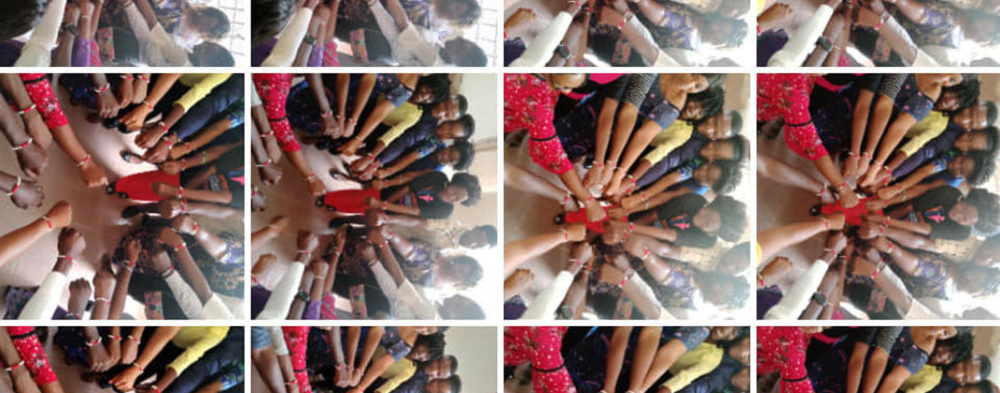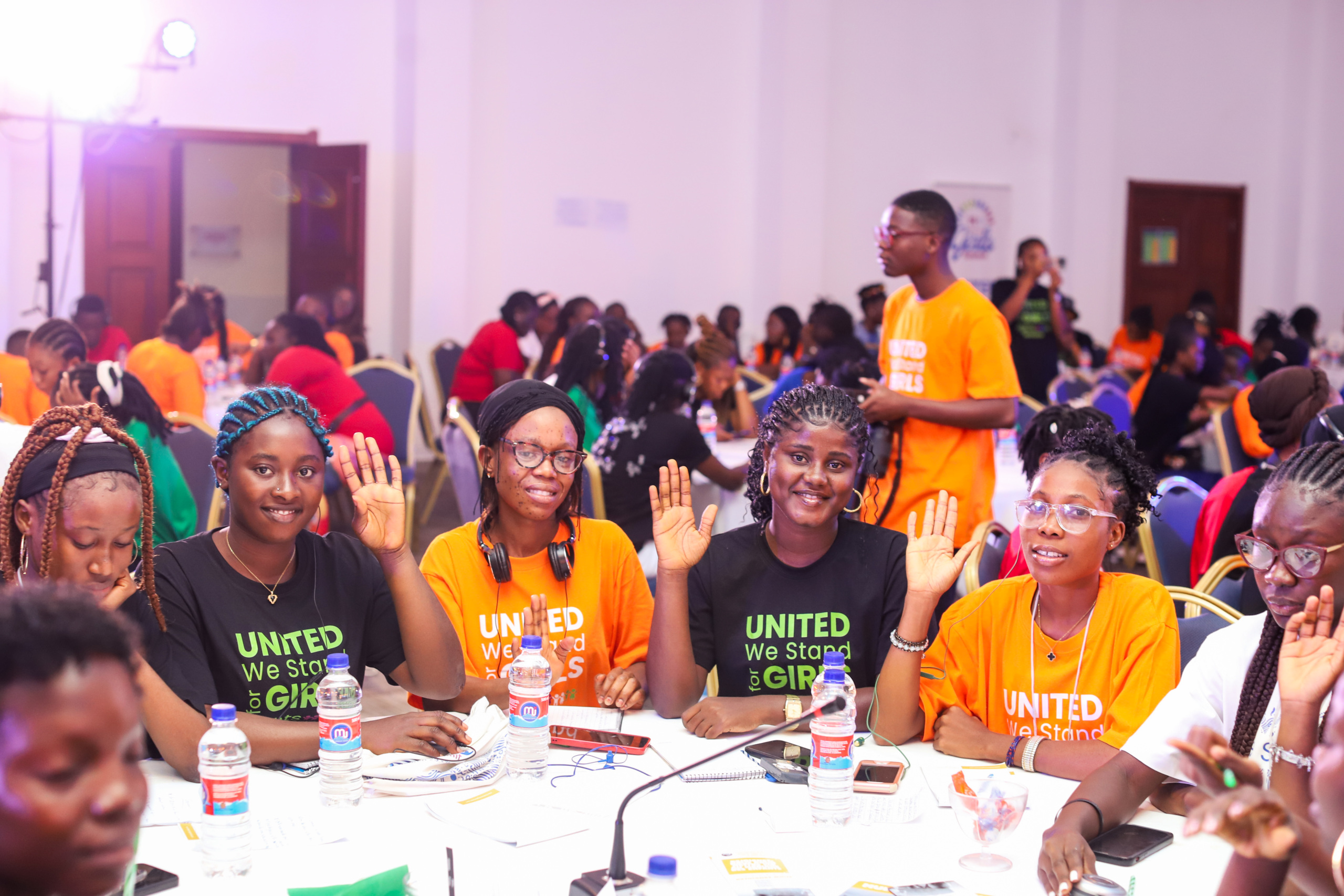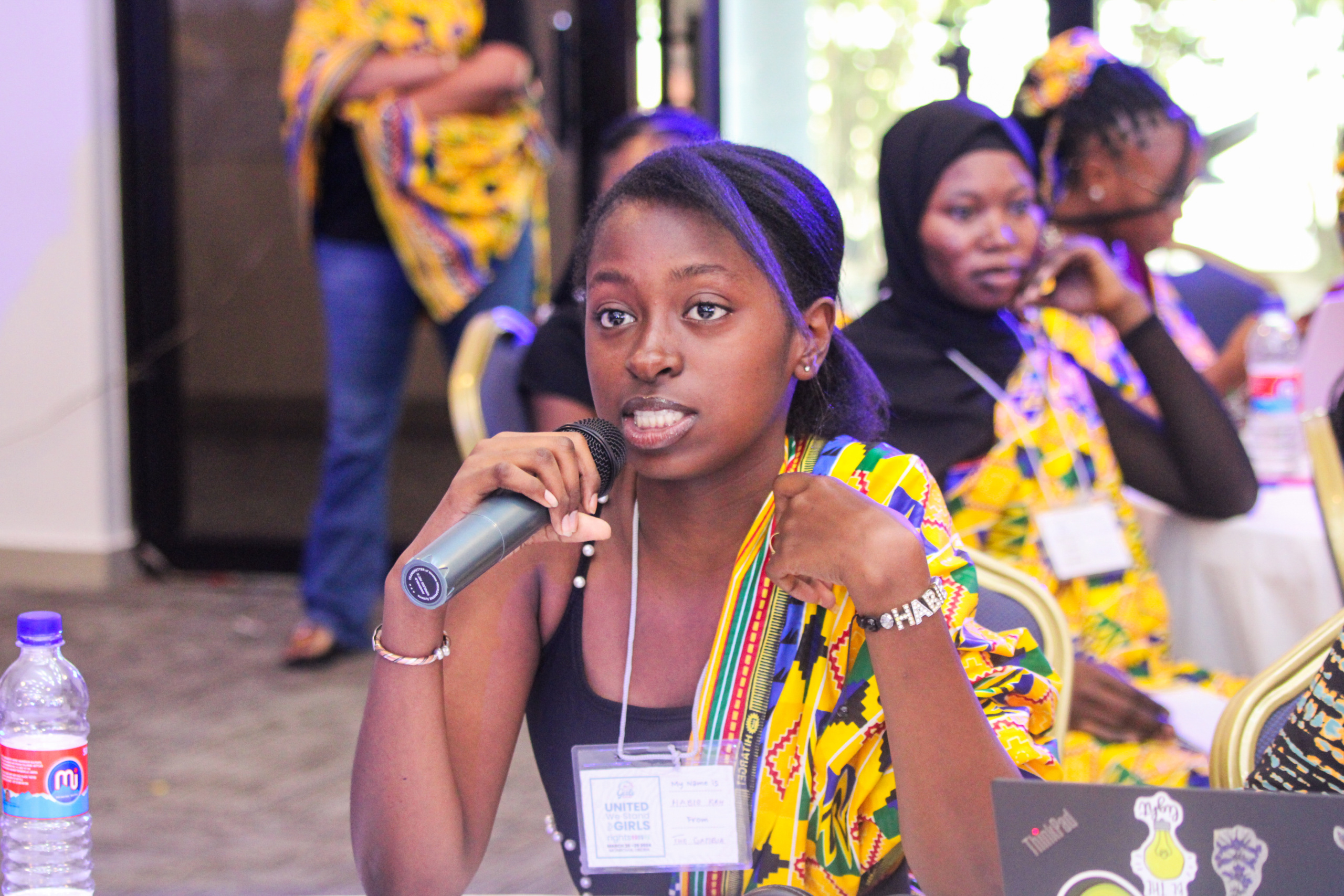
Gender justice, Youth power
Gender justice
Child, early, and forced marriage has devastated countless girls’ lives in Africa, robbing them of their childhood, education, and health, and it remains a critical issue that girls themselves consistently raise at the Adolescent Girls Summit (AGS), a biannual gathering that brings together adolescent girls from diverse backgrounds to amplify their voices and advocate for their rights.
The signing of the Prohibition of the Child Marriage Act in Sierra Leone on July 2nd, 2024 marks a monumental victory for all who have tirelessly advocated for the rights of girls. This new law introduces a minimum penalty of 15 years imprisonment and a fine of approximately $4,000 for any man who marries a girl under 18. It also prohibits cohabiting with a child and imposes fines on anyone who arranges, aids, or attends such marriage ceremonies. The news of this legislation was met with widespread celebration among adolescent girls and boys, GFC partners, and national and international non-governmental organizations who have spent years raising awareness about the devastating effects of child, early, and forced marriage.

According to the 2019 Sierra Leone Demographic and Health Surveys, 30% of girls in Sierra Leone are married before their 18th birthday. In 2020, there were 800,000 child brides, half of whom were married before they turned 15, according to UNICEF. Child marriages fuel the high adolescent pregnancy rate in Sierra Leone where, tragically, pregnancy complications are the leading cause of death for girls aged 15-19,” according to Human Rights Watch (HRW). Child marriage is a deeply ingrained issue not only in Sierra Leone but across Africa, where traditional and cultural norms often push girls into marriage before they reach adulthood. This practice not only robs them of their childhood but also severely limits their opportunities for education and economic independence, perpetuating cycles of poverty and inequality.
The immediate impact of this law is the legal protection it offers to young girls, ensuring that they are no longer coerced into marriage against their will. This legislation sends a powerful message to communities that child marriage is no longer acceptable. It challenges entrenched cultural norms and empowers families to prioritize the education and well-being of their daughters.
One of the most significant outcomes of this new law will be its role in promoting girls’ education. Research consistently shows that girls who are not forced into early marriage are more likely to stay in school, complete their education, and contribute meaningfully to their communities and the economy. Therefore, this law is not just a tool for protection; it is also a catalyst for empowerment, enabling girls to pursue their dreams and break free from the constraints of early marriage. However, while the passing of this law is a significant achievement, its effective implementation will require sustained efforts. Changing long-standing cultural practices is challenging, and there will likely be resistance from some quarters. As we celebrate this landmark milestone, we must remain vigilant and steadfast in our commitment to the work that lies ahead. While legal reforms, such as the ban on child marriage, are crucial, they represent only the initial step toward meaningful change. To translate this law into tangible benefits for girls, we must continue to actively engage with community leaders, parents, and educators to shift cultural norms and eliminate the societal pressures that drive early marriage.

Moreover, educational initiatives are equally important; they equip girls with the tools, knowledge, and skills necessary to pursue their dreams and contribute to their communities. Education empowers girls not just academically, but also socially and economically, enabling them to challenge existing norms and advocate for their rights.
Equally essential is the inclusion of girls themselves as active participants in the journey to realizing their rights. Their voices and perspectives are vital in shaping effective interventions and programs that directly address their needs and aspirations. Empowering girls to take the lead in discussions about their futures creates in them a sense of agency and self-confidence that is crucial for their development.
Furthermore, advocacy must continue for the government to establish comprehensive support systems to ensure girls’ safety, health, and well-being. This includes access to healthcare, counseling services, and safe spaces where girls can express themselves freely and seek help when needed.
Only through this holistic approach can we ensure that the law not only exists on paper but also leads to real, transformative change across Sierra Leone. It is a collective responsibility—one that requires collaboration among all stakeholders, including governments, non-governmental organizations, community members, and the girls themselves.
Since 2020, players of People’s Postcode Lottery have helped GFC transform the lives of thousands of children and young people around the world. We are deeply grateful to players of People’s Postcode Lottery for supporting the Adolescent Girls Summit.
